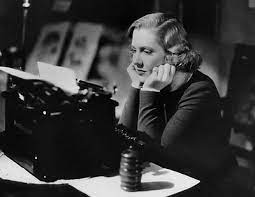
1.PRIMING THE PUMP
Always leave something undone at the end of your writing day. You’ll have a running start in the morning. Think about your script in the moments between waking and rising. There’s an image in your head, you don’t know why. The elves were working overtime.
Always leave something undone at the end of your writing day. You’ll have a running start in the morning. Think about your script in the moments between waking and rising. There’s an image in your head, you don’t know why. The elves were working overtime.
2.HOMEWORK
Study great scripts not to imitate, but to learn the architecture. Internalize the beats and tropes of genre to understand the audience’s expectations and subvert them. Picasso could paint beautiful portraits before he rearranged the faces.
Study great scripts not to imitate, but to learn the architecture. Internalize the beats and tropes of genre to understand the audience’s expectations and subvert them. Picasso could paint beautiful portraits before he rearranged the faces.
3.CHEATING
Try recording a conversation, then transcribe it. Real speech is fragmented and redundant. Sentences without subjects, paragraphs full of ellipses. If your dialogue sounds like writing, cut it. Your most clever, articulate lines should be the first to go.
Try recording a conversation, then transcribe it. Real speech is fragmented and redundant. Sentences without subjects, paragraphs full of ellipses. If your dialogue sounds like writing, cut it. Your most clever, articulate lines should be the first to go.
4.CHEATING, PT II
Do the actors’ work for them. When you play a scene in your head, put yourself inside each character and ask if they’re true to themselves or merely serving the plot. Subtext gives them something to play. It should feel they’re cheating when they act.
Do the actors’ work for them. When you play a scene in your head, put yourself inside each character and ask if they’re true to themselves or merely serving the plot. Subtext gives them something to play. It should feel they’re cheating when they act.
5.THE STUDIO READ
Don’t try to do the Art Director’s job. Long descriptions are for novelists. If the mise-en-scene isn’t clear from the dialogue, there’s something wrong with the scene. Find an Alvin Sargent script. It’s like watching a movie rather than reading one.
Don’t try to do the Art Director’s job. Long descriptions are for novelists. If the mise-en-scene isn’t clear from the dialogue, there’s something wrong with the scene. Find an Alvin Sargent script. It’s like watching a movie rather than reading one.
6.YOUR OUTLINE
It’s the first thing you create and the next thing you abandon. No matter how much thought you’ve given to the armature of a story, it’s impossible to anticipate how much or how little a scene can accomplish. Your work is done, let the characters guide you.
It’s the first thing you create and the next thing you abandon. No matter how much thought you’ve given to the armature of a story, it’s impossible to anticipate how much or how little a scene can accomplish. Your work is done, let the characters guide you.
7.YOUR OUTLINE, PT. II
If you’re at a loss for what should happen next, ask yourself, ‘what would REALLY happen? Certain obligatory beats can enliven your script with a dramatic obstacle. Others are so obvious, try leaving them out and let the ellipses tell the story.
If you’re at a loss for what should happen next, ask yourself, ‘what would REALLY happen? Certain obligatory beats can enliven your script with a dramatic obstacle. Others are so obvious, try leaving them out and let the ellipses tell the story.
8.FLASHBACKS
Sometimes they’re essential, often redundant. If you count on them to understand a character’s motivation, there’s something wrong with your ‘present’ story. Is the counter-narrative intrinsically interesting or a crutch? Can your script work without it?
Sometimes they’re essential, often redundant. If you count on them to understand a character’s motivation, there’s something wrong with your ‘present’ story. Is the counter-narrative intrinsically interesting or a crutch? Can your script work without it?
9.EXPOSITION
Nothing more grating than expository dialogue. In life, no one says something to somebody who already knows what they’d say. Lord Jim Brooks in ‘Broadcast News’: “I’ll meet you at the place near the thing where we went that time.” Genius.
Nothing more grating than expository dialogue. In life, no one says something to somebody who already knows what they’d say. Lord Jim Brooks in ‘Broadcast News’: “I’ll meet you at the place near the thing where we went that time.” Genius.
10.WHY WE FIGHT
The Queen’s Gambit took 30 years to get made with 9 rewrites after being turned down by every studio that read it, claiming no one would be interested in a movie about chess. It was viewed by 62 million people and received 18 Emmy nominations.
The Queen’s Gambit took 30 years to get made with 9 rewrites after being turned down by every studio that read it, claiming no one would be interested in a movie about chess. It was viewed by 62 million people and received 18 Emmy nominations.
• • •
Missing some Tweet in this thread? You can try to
force a refresh










